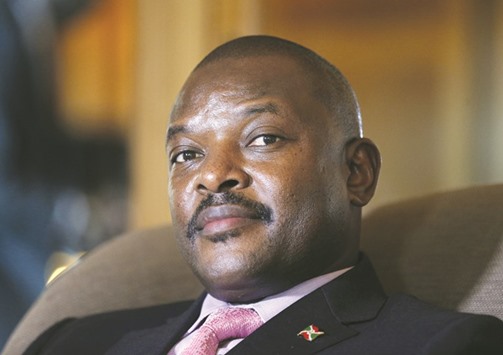Rights organisations have condemned a vote by Burundian lawmakers to withdraw from the International Criminal Court (ICC), warning that the government was trying to hide abuses from the eyes of the world.
If Burundi quits the tribunal it would be “a significant escalation of the regime’s policy to isolate itself”, said Dimitris Christopoulos, president of the FIDH, which represents human rights groups around the world.
“This attempt to deprive the international community of its eyes and ears in Burundi in order to continue to commit serious crimes with impunity and without the world knowing, requires a strong and immediate response from the African Union and the United Nations,” he added.
Burundian lawmakers on Wednesday overwhelmingly voted to withdraw from the tribunal in The Hague, taking the central African nation a step closer to being the first ever to quit the body.
The move is the latest snub of the international community by Burundi, which has been mired in 18 months of violent political crisis since President Pierre Nkurunziza ran for a third term in office.
A spokesman for the ICC said withdrawing from the Rome Statute which underpins the tribunal was “a voluntary and sovereign decision which is the prerogative of all states”.
But Burundi appears not to have formally written to the UN secretary general informing him of the decision.
Once formal notification is received, the country’s departure from the 124-nation body will only become effective after a year.
However, ICC spokesman Fadi El Abdallah told AFP that even if a country leaves the ICC it is still bound by any ongoing actions.
In April, ICC chief prosecutor Fatou Bensouda launched a preliminary investigation into reports of “killing, imprisonment, torture, rape and other forms of sexual violence, as well as cases of enforced disappearances”.
The initial probe is aimed at determining whether there is enough evidence to proceed to a full-blown investigation by ICC prosecutors which could result in charges against those believed responsible for the violence.
Abdallah said the court had had “overwhelming support of African states” when it opened in 2002 as the world’s only permanent war crimes court.
Its mission was “to fight impunity for atrocity crimes, and by so doing, strengthen the rule of law, break the cycles of violence and to contribute to peace and stability”.

Nkurunziza
